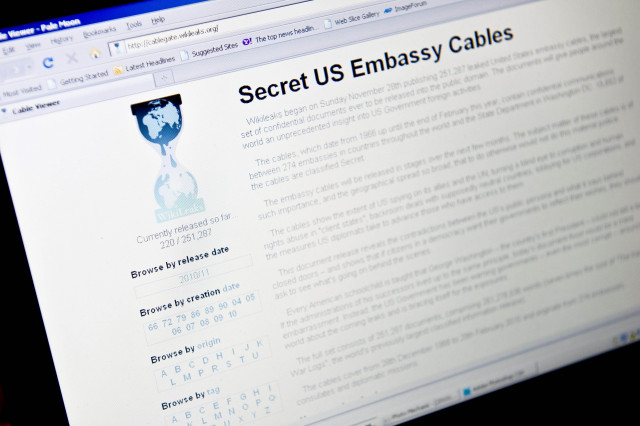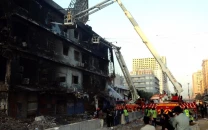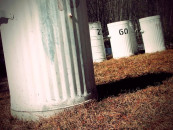Seminar on WikiLeaks: ‘If someone leaked ISI documents, he wouldn’t have survived’
A 9/11 for US diplomacy but also a 9/11 for journalism.

Seminar on WikiLeaks: ‘If someone leaked ISI documents, he wouldn’t have survived’
The speakers — former ambassador Mansoor Alam and journalist Mazhar Abbas — talked to a room of about 30 people about Julian Assange, the founder of WikiLeaks and the nature of the documents. For a discussion about throwing light on WikiLeaks, it was ironic that the seminar was conducted by daylight — and then by candle — since the PIIA had no electricity.
As the room grew darker by the minute, Abbas and Alam took turns to ‘shed light’ on WikiLeaks. Abbas called Assange a “computer guerrilla” who had “done what I would also want to do”. Abbas spoke about the fact that “we live in an age of misinformation, disinformation and deliberate plots in authoritative regimes” where stories are often planted and leaked to the press. He called the leak of these documents, “a 9/11 for US diplomacy but also a 9/11 for journalism.”
Mazhar Abbas mentioned the consequences news organisations in Pakistan face when they report on issues such as Baloch nationalism and the police, and cited examples of reporters who had been charged under the Official Secrets Act. He also referred to a move by the government that disallowed employees from appearing on television.
“If someone like Assange were to leak the documents of the political wing of the Inter-Services Intelligence, for example, he wouldn’t survive,” Abbas said.
Mansoor Alam, on the other hand, said “secrecy, counter-secrecy and intelligence is part of our (diplomatic) work - we can’t survive without it.” He quoted many of the comments made about Pakistani politicians in the cables that drew in laughs from the audience.
He talked about the reaction these documents had in Pakistan and said, “The excitement will go on for years to come.” However, he said, the reason the Pakistan-specific cables had received so much attention was because Pakistan is a frontline state in the war and so is closely linked to international diplomacy.
The lack of light didn’t faze the speakers. In a poignant display of ingenuity, Alam used a mobile phone’s torchlight, and then candles, to refer to his notes. He spoke at length about how diplomatic cables used to be encrypted, drawing from his own experience of the Foreign Service. He pointed out that the cables are mostly personal opinions of those who are writing them and do not relate to policy matters. “Unlike our Foreign Office, and many other foreign offices, the Americans are a great one for writing everything down,” he said.
However, he minimised the impact the release of the cables would have (WikiLeaks has only released a fraction of the 251, 287 cables). “Personally, I feel it will make Americans and other leaders more cautious — there will be no free and frank discussions. It also cannot help but impact relationships between two countries. It is also an indication of things to come. However, countries will continue to help Pakistan regardless of what they think of President Zardari, for example. It does not mean that Pakistan’s intrinsic importance has lessened.”
The PIIA library was not the only place in the city where WikiLeaks were being discussed on Saturday. The visiting vice president of programmes at the International Center for Journalists (ICFJ) in Washington, Patrick Butler, also commented on the phenomenon at the Vicky Zeitlin Media Library of Pakistan Press Foundation.
The startling disclosures have further underscored the importance of media ethics in a time when contemporary media is changing fast, quoted Butler as saying.
Published in The Express Tribune, December 12th, 2010.



















COMMENTS
Comments are moderated and generally will be posted if they are on-topic and not abusive.
For more information, please see our Comments FAQ